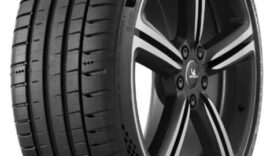Diesel vs Gasoline: Which Fuel Wins?

In the ongoing debate of diesel vs gasoline, understanding the distinct characteristics of these fuel types is essential for vehicle owners. Diesel engines operate differently from gasoline engines, utilizing compression for ignition, which provides them with unique advantages such as higher fuel efficiency and durability. On the other hand, gasoline engines offer smoother operation and quicker acceleration, making them a popular choice for everyday driving. Each fuel type has its benefits, with diesel excelling in powering larger vehicles and offering longevity, while gasoline is often favored for smaller cars. Ultimately, choosing the right fuel depends on individual driving habits and vehicle requirements. This blog post delves into the mechanics of diesel and gasoline engines, their respective advantages, and guidance on selecting the appropriate fuel for your vehicle, ensuring informed decisions in the diesel vs gasoline debate.
Understanding Diesel and Gasoline Fuel Types
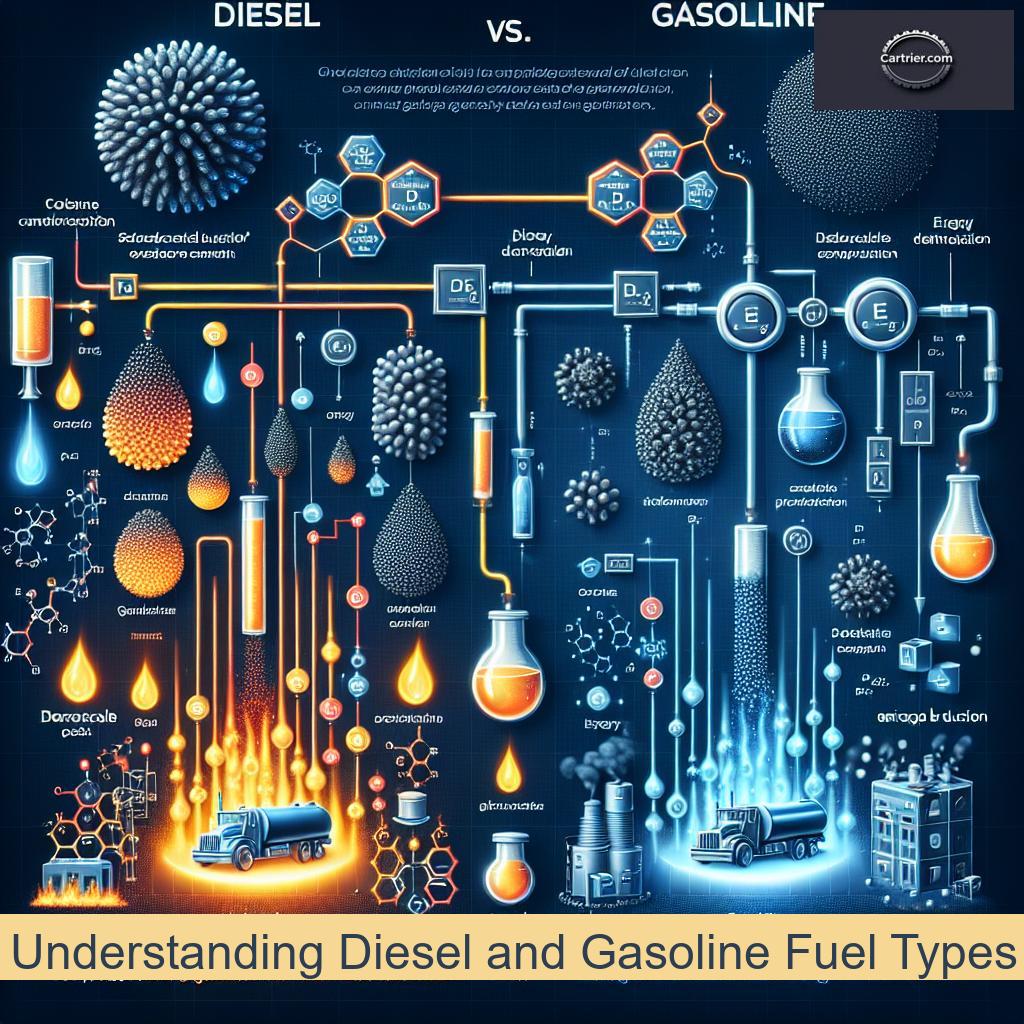
When it comes to comparing diesel vs gasoline, there are several critical aspects to consider. Each fuel type offers distinct characteristics that can significantly impact vehicle performance, efficiency, and overall driving experience. Diesel engines are known for their superior fuel efficiency, often leading to lower costs for drivers in the long run. On the other hand, gasoline engines present advantages in terms of performance and acceleration, making them appealing for different types of vehicles and driving conditions.
To provide a clear view of the differences, let’s delve into some of the primary factors that influence the diesel vs gasoline debate. These factors include performance, efficiency, emissions, and overall cost of operation. Understanding these nuances can empower consumers to make informed decisions based on their individual needs and preferences when selecting between diesel and gasoline options.
Key Differences Between Diesel and Gasoline
- Fuel Composition: Diesel fuel is thicker and oilier than gasoline, affecting engine design and performance.
- Engine Efficiency: Diesel engines typically offer higher efficiency and torque compared to petrol engines.
- Fuel Economy: Vehicles powered by diesel often achieve better mileage than their gasoline counterparts.
- Emissions: Diesel engines generally produce higher nitrogen oxide (NOx) and particulate matter emissions than gasoline engines.
- Cost: Diesel fuel is often more expensive than gasoline, but diesel engines provide fuel savings over time.
- Noise and Vibration: Diesel engines tend to be noisier and produce more vibration than gasoline engines.
- Vehicle Type: Diesel is frequently used in larger vehicles, such as trucks and buses, while gasoline is standard in passenger cars.
In the context of diesel vs gasoline emissions, environmental considerations play a pivotal role in the automotive industry. While diesel engines may have a reputation for being more fuel-efficient, the emission profile and regulatory standards continue to evolve. This creates an ongoing dialogue about which fuel type is more environmentally friendly. Therefore, consumers should weigh the benefits of diesel fuel against its higher emissions to determine the most suitable option for their transportation needs.
Ultimately, the choice between diesel and gasoline extends beyond performance and cost. Factors such as driving habits, vehicle usage, and personal preferences must also be considered. By examining the differences between diesel vs gasoline, drivers can align their fuel choice with their specific requirements, ensuring they select the best option for their vehicle and lifestyle.
How Diesel Engines Work
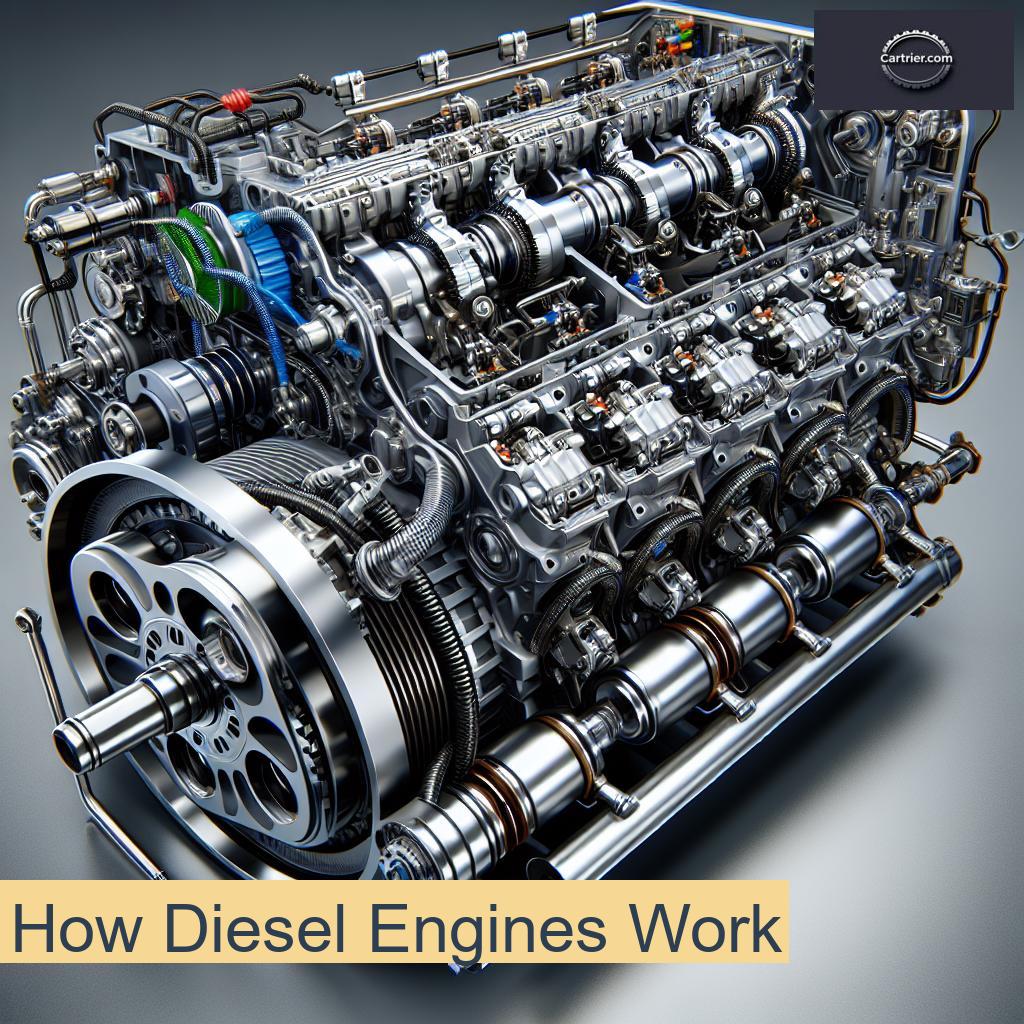
To understand the diesel vs gasoline debate, it’s essential first to comprehend how diesel engines function. Diesel engines operate on a four-stroke cycle that powers vehicles with enhanced efficiency. These engines use compression ignition rather than the spark ignition found in gasoline engines, leading to a distinct set of benefits and challenges. Generally, diesel engines are more fuel-efficient than gasoline engines, often providing better torque and longevity.
One of the major factors contributing to this efficiency is the combustion process in diesel engines. Diesel fuel benefits include a higher energy density and better fuel economy, as diesel engines can convert more fuel energy into motion. This is particularly evident in heavy-duty applications, where the fuel type comparison between diesel and gasoline reveals a clear advantage for diesel. However, it’s also important to consider the performance elements relative to gasoline engines, including acceleration and engine responsiveness, which are key aspects for everyday drivers.
Steps in a Diesel Engine’s Operation
- Air intake and compression: The engine draws in air, which is then compressed to a high pressure and temperature.
- Fuel injection: Diesel fuel is injected directly into the compressed air, igniting due to the high temperature.
- Combustion: The fuel ignites, creating expanding gases that force the piston down.
- Power stroke: The downward movement of the piston turns the crankshaft, generating power.
- Exhaust stroke: The exhaust valves open, expelling spent gases from the cylinder.
As the components work together, the engine maintains a cycle that exemplifies diesel engine efficiency. The reliability of these engines also supports the notion that diesel vs gasoline cost differs significantly. Although diesel fuel may cost a bit more at the pump, the overall mileage often compensates for the price difference by offering superior performance over time. Additionally, when exploring diesel vs gasoline emissions, it becomes evident that while diesel engines can produce higher nitrogen oxides and particulates, the overall greenhouse gas emissions tend to be lower than those of gasoline engines.
Components of Diesel Engines
The primary components of diesel engines include the fuel injector, cylinder, piston, and turbocharger. The fuel injector is crucial as it delivers diesel directly into the combustion chamber at high pressure, further contributing to the efficiency of operation. Understanding how these components work in unison is essential for recognizing the advantages of diesel engines in terms of their performance in various driving conditions. From commercial trucks to compact cars, diesel engines present a formidable alternative to gasoline engines, especially for those prioritizing fuel efficiency and durability.
How Gasoline Engines Work
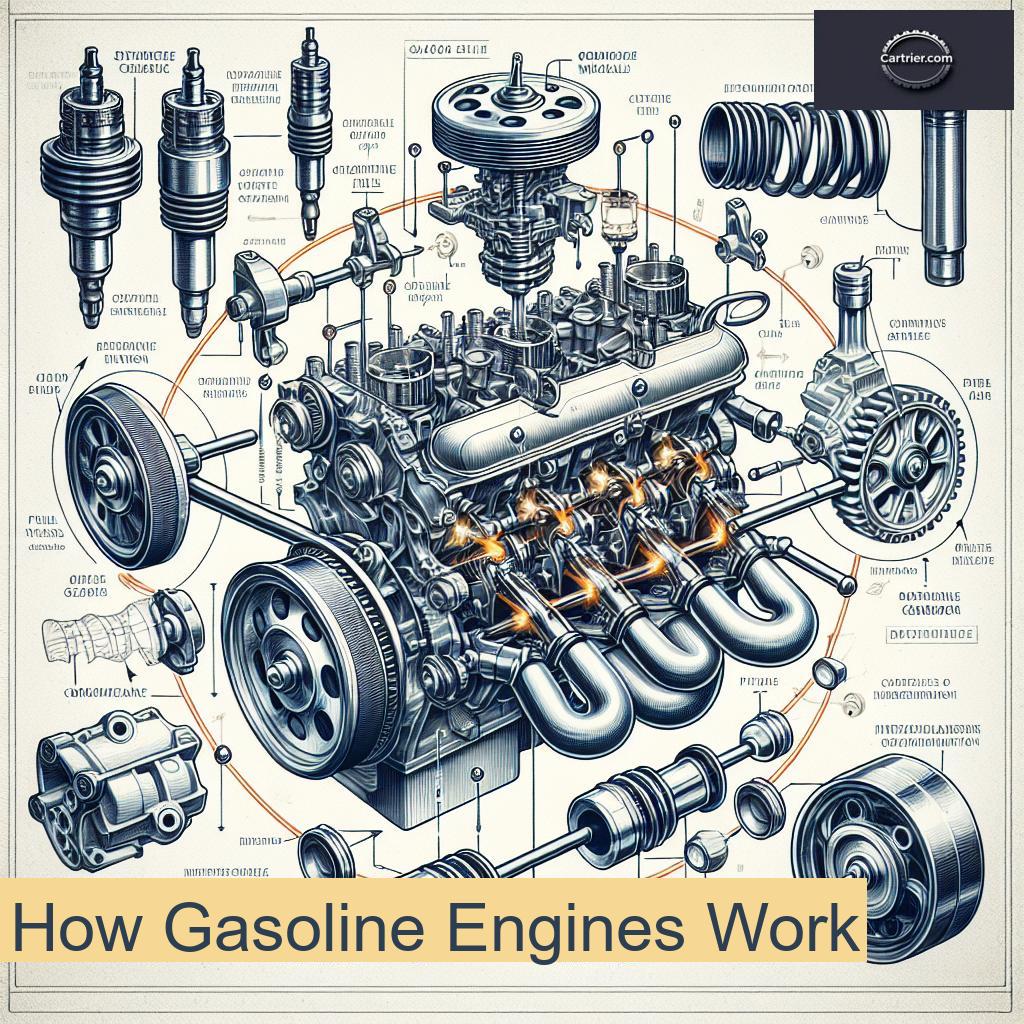
When delving into the fundamentals of vehicle performance, understanding how gasoline engines work is crucial, especially when comparing diesel vs gasoline technologies. Gasoline engines operate on a four-stroke cycle, allowing for efficient conversion of fuel into mechanical energy. This process involves the intake, compression, power, and exhaust strokes, each playing a vital role in engine efficiency and performance.
The efficiency of gasoline engines is often measured in terms of their power output and overall performance metrics. While diesel engine efficiency allows for greater torque generation, gasoline engines excel in terms of responsiveness and higher RPM capabilities, appealing to a wide range of drivers. The choice between diesel vs gasoline also extends to aspects such as emissions and fuel economy, leading to a richer discussion regarding their respective benefits.
Stages of a Gasoline Engine Cycle
- Intake Stroke: Air-fuel mixture enters the cylinder.
- Compression Stroke: The mixture is compressed by the rising piston.
- Power Stroke: The spark plug ignites the mixture, pushing the piston down.
- Exhaust Stroke: The piston moves up to expel exhaust gases.
Different factors come into play when considering gasoline fuel benefits, such as its widespread availability and relatively lower initial purchase costs for vehicles compared to diesel options. While both fuel types offer distinct advantages, evaluating diesel vs gasoline cost can guide potential buyers in making an informed choice. Furthermore, fuel type comparison based on diesel vs gasoline emissions highlights another critical consideration, given the increasing focus on environmental standards.
Mechanics of Gasoline Engines
The mechanics of gasoline engines rely on several fundamental components, including pistons, crankshafts, and spark plugs. These elements work together in harmony to ensure the efficient functioning of the engine. By requiring a spark to ignite the air-fuel mixture, gasoline engines can deliver impressive gasoline engine performance. Additionally, advancements in technology, such as fuel injection systems, have improved the efficiency and responsiveness of these engines, making them popular choices among consumers. As we explore the debate between diesel vs gasoline, it becomes evident that both options have unique strengths that cater to different driving needs and preferences.
Advantages of Diesel Engines
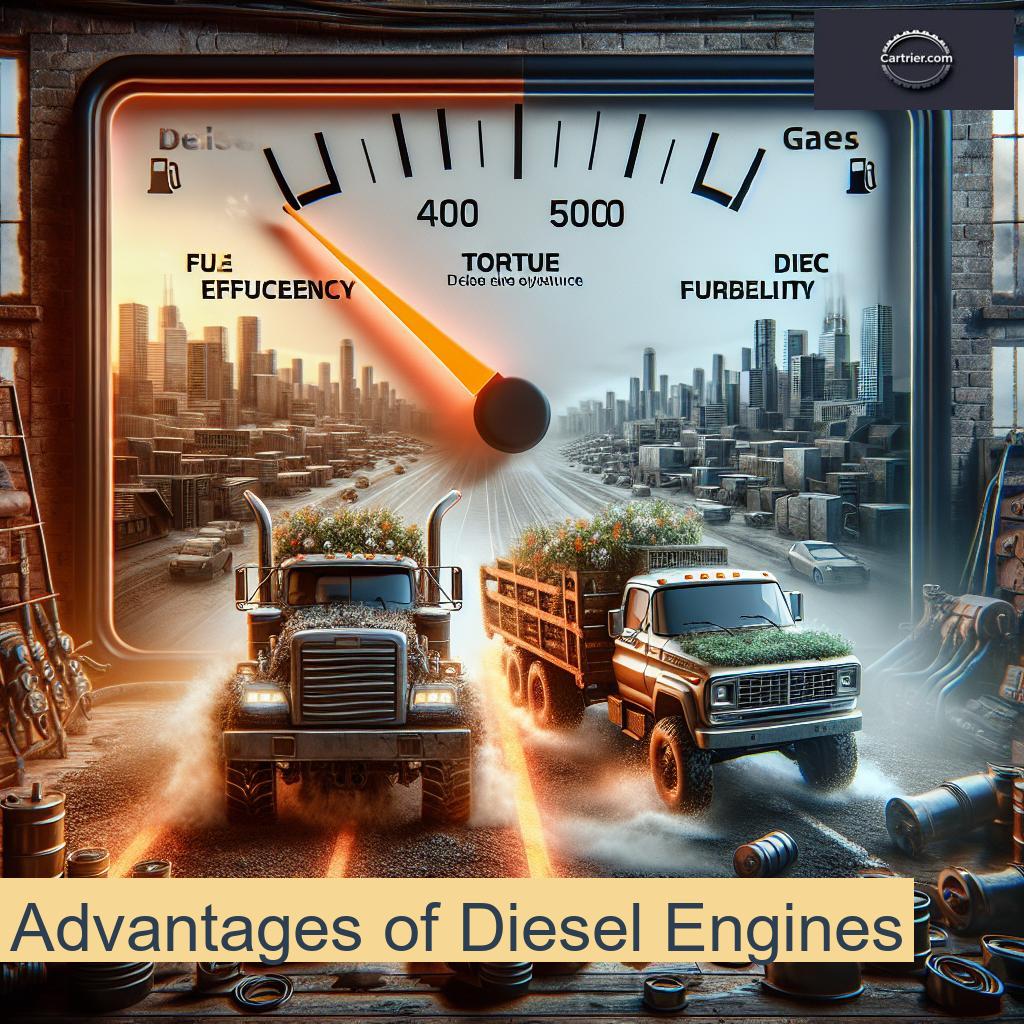
When comparing diesel vs gasoline, it’s essential to evaluate the numerous diesel fuel benefits that make diesel engines a favorable option for various applications. Diesel engines are known for their superior efficiency and durability, which significantly contributes to their appeal for both personal and commercial use. This efficiency translates into lower fuel consumption and extended engine life, making diesel vehicles a wise choice for those looking to maximize their investment.
Another remarkable aspect of diesel engines is their exceptional torque output. This characteristic allows diesel-powered vehicles to deliver better performance, particularly in heavy-duty applications such as towing and hauling. In contrast to gasoline engine performance, which generally offers higher RPM ranges, the strong torque provided by diesel ensures that drivers can manage even the most demanding tasks with ease.
Key Benefits of Choosing Diesel
- Higher fuel efficiency compared to gasoline engines.
- Longer engine life due to reduced wear and tear.
- Greater torque for better pulling power and load handling.
- Better fuel economy, usually leading to lower operating costs.
- Lower carbon dioxide emissions, making it an eco-friendlier option.
- Ideal for long-distance driving and commercial applications.
- Less frequent refueling due to superior mileage.
Additionally, when assessing diesel vs gasoline emissions, it’s important to note that diesel engines tend to emit lower levels of carbon dioxide but might produce higher nitrogen oxides and particulates. As environmental regulations become increasingly strict, manufacturers are finding ways to reduce these emissions, enhancing the appeal of diesel engines while aligning with global sustainability goals.
Ultimately, when it comes to a fuel type comparison, the analysis of diesel vs gasoline mileage highlights diesel engines’ strong performance in efficiency. This quality not only helps save on fuel costs but also enhances the overall driving experience. Thus, choosing diesel can be a practical choice for those prioritizing performance and value in their vehicles.
Advantages of Gasoline Engines
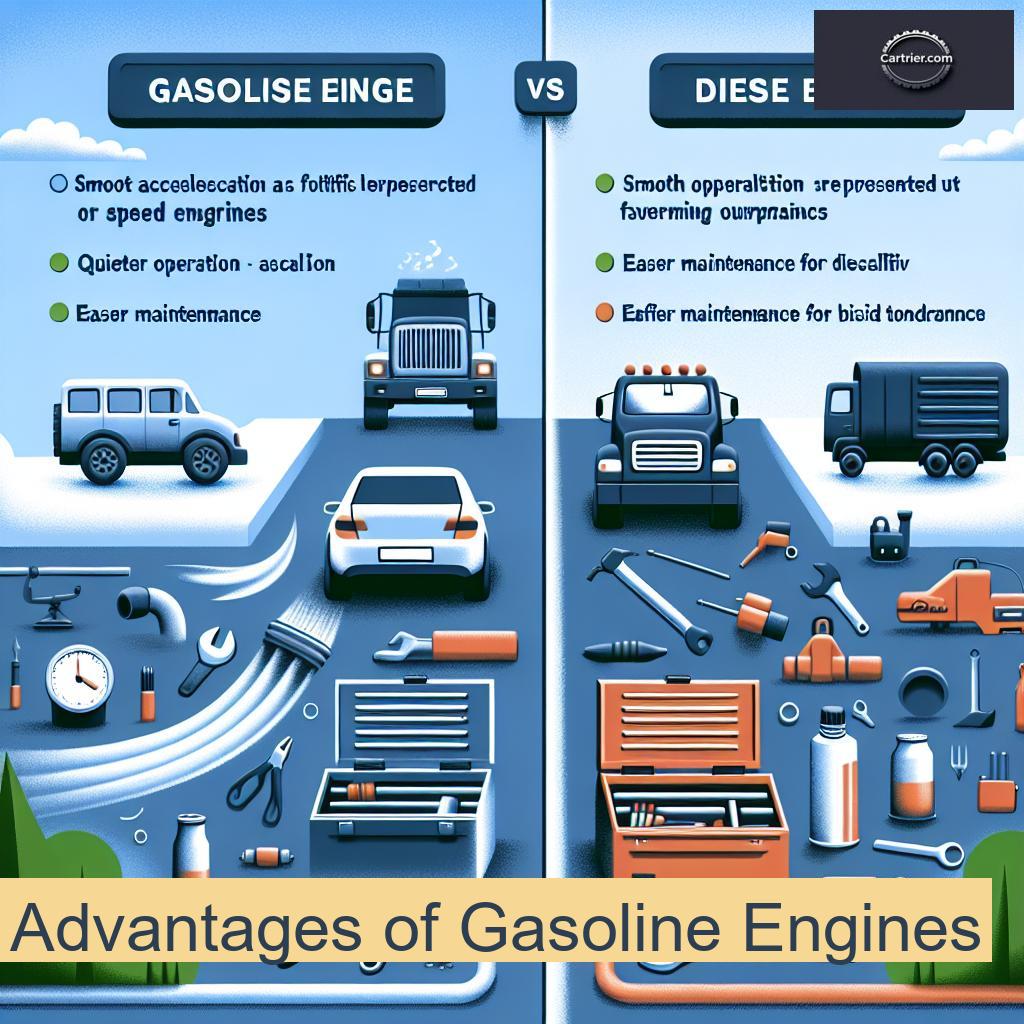
When examining the diesel vs gasoline debate, it’s essential to highlight the numerous advantages associated with gasoline engines. These engines are often praised for their rapid responsiveness and smooth operation, making them a popular choice for many vehicle owners. In this discussion, we will explore the core benefits that gasoline engines provide, focusing primarily on performance, efficiency, and cost-effectiveness.
One of the main advantages of gasoline engines is their overall performance. Gasoline engine performance typically includes better acceleration compared to their diesel counterparts. Gasoline engines can rev higher than diesel engines, allowing for quicker throttle response, which is particularly beneficial in urban driving conditions. This characteristic makes gasoline vehicles a preferred choice for drivers who prioritize an engaging driving experience.
Top Benefits of Gasoline Vehicles
- Quicker acceleration and better throttle response
- Generally lower initial purchase price compared to diesel vehicles
- Wider availability of gasoline options and infrastructure
- Lighter weight leading to improved handling
- Less isolation in cabin noise compared to diesel engines
- Less costly routine maintenance
- Higher RPM capabilities enhancing sporty driving dynamics
In terms of maintenance, gasoline engines typically have a reputation for being easier and more cost-effective to maintain. While diesel engines may offer better fuel efficiency, the costs associated with routine maintenance and repairs can add up over time. Gasoline vehicles often have less complex starting systems and fewer parts exposed to high pressure, making them more economical in the long run.
Lastly, when considering diesel vs gasoline emissions, gasoline engines tend to produce fewer particulate emissions and NOx gases, contributing to a cleaner environment. This factor makes gasoline vehicles more appealing to environmentally conscious consumers who are looking for lower emissions without sacrificing performance. Ultimately, the advantages of gasoline vehicles make them a strong contender in the ongoing debate of diesel vs gasoline.
Choosing the Right Fuel for Your Vehicle
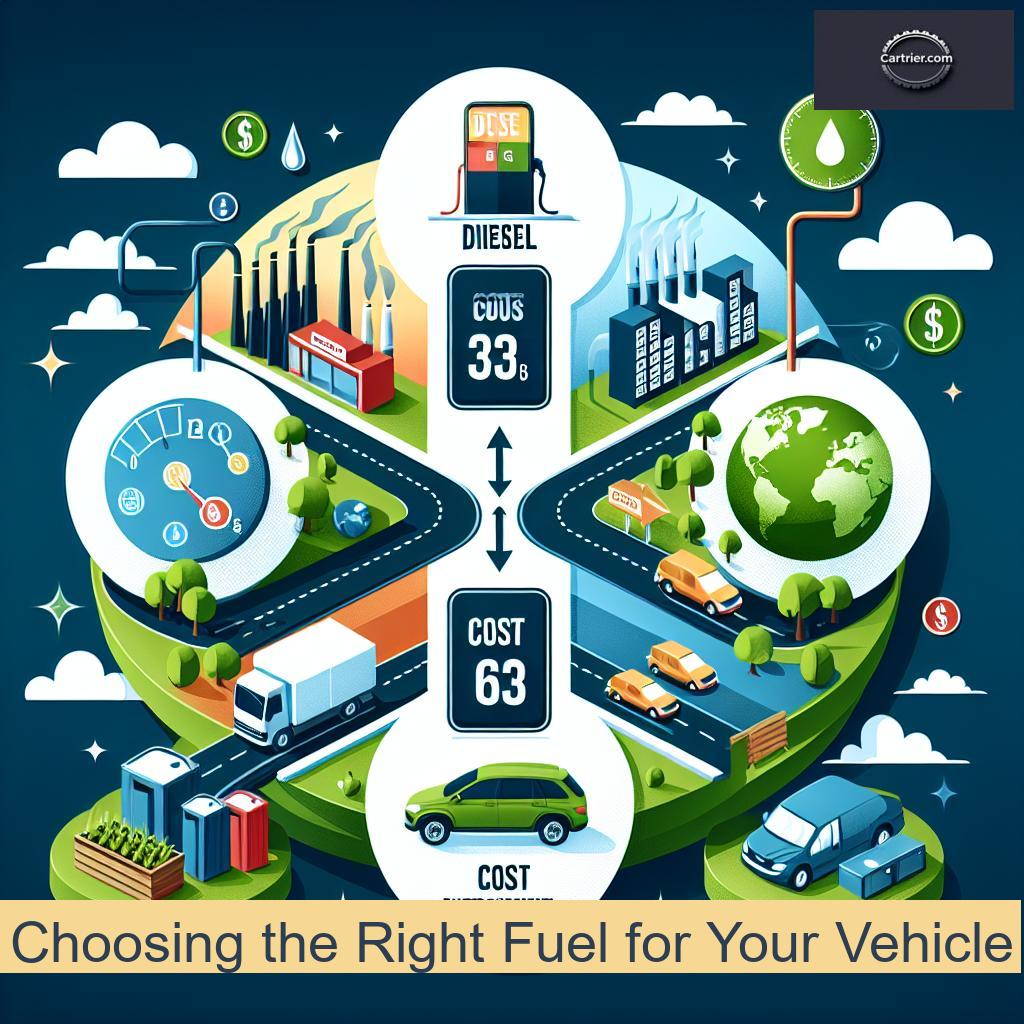
When deciding between two popular fuel options, it’s essential to consider the diesel vs gasoline debate. Each fuel type has distinct characteristics that can influence vehicle performance, efficiency, and emissions. Understanding these differences helps drivers make informed decisions based on their needs and vehicle compatibility.
The benefits of diesel fuel are numerous. Diesel engine efficiency is often superior, providing better torque and power for heavier loads, making it an excellent choice for trucks and larger vehicles. In terms of fuel economy, diesel engines generally yield better mileage compared to gasoline engines, leading to fewer stops at the pump. However, it’s crucial to weigh these advantages against potential drawbacks, such as higher initial costs and the availability of diesel fuel.
Steps to Choose the Perfect Fuel
- Assess your vehicle’s compatibility with either fuel type.
- Evaluate your driving habits and how often you travel long distances.
- Consider the diesel vs gasoline emissions and their impact on the environment.
- Compare the diesel vs gasoline cost in your area.
- Analyze your budget for maintenance and potential repairs.
- Research local fuel availability to ensure convenience.
On the other hand, the benefits of gasoline fuel should not be overlooked. Gasoline engines typically offer better gasoline engine performance and a smoother operation, making them preferable for many drivers. Furthermore, gasoline vehicles often require less maintenance than their diesel counterparts, which can lead to lower overall ownership costs. However, in a diesel vs petrol cars scenario, the choice may ultimately come down to personal preference, intended use, and lifestyle.





